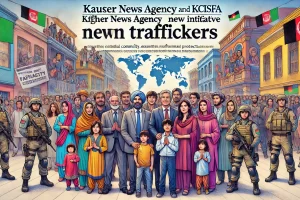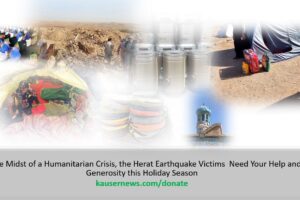In a small apartment in Sacramento, the glow of a smartphone screen connects two worlds. On one end, an Afghan family newly evacuated to the United States, clutching a lifeline of government assistance designed to help them build a new life. On the other, relatives in Kabul, their voices filled with the quiet desperation of a homeland in crisis. The question that hangs in the air, unspoken but heavy, is a moral and legal tightrope walk: Can the very aid meant to plant their roots in America be used to send a lifeline back home?
This dilemma is a stark reality for thousands of Afghan evacuees, asylum seekers, and Special Immigrant Visa (SIV) holders across the nation. Having escaped the fall of their country, they now navigate the complexities of resettlement, which often includes temporary support from programs like the Supplemental Nutrition Assistance Program (SNAP/Food Stamps) and Refugee Cash Assistance (RCA). But with families facing poverty and uncertainty in Afghanistan, the impulse to share this aid is powerful.
The answer,, is not found in the heart, but in the intricate rules of federal assistance.
The U.S. government provides this support with a clear purpose: to be a foundational safety net, enabling newcomers to achieve stability and, ultimately, self-sufficiency on American soil. The rules governing this aid create a bright line between different types of support.
For Cash Assistance programs like TANF or RCA, the rules exist in a legal gray area. These funds are for essential needs like rent and utilities. Once the cash is in a recipient’s hands, the government does not explicitly prohibit them from sending it to relatives. No law specifically forbids a refugee from wiring a portion of their cash aid abroad.
Food stamps, the line is not gray it is an absolute boundary that cannot be crossed.
Let’s be unequivocally clear: using food stamps to send money is a crime. The crime isn’t the act of sending money itself; the crime is how you get that money from the food stamp program in the first place. This is called SNAP trafficking.
SNAP benefits are distributed on an EBT card that can only be used to purchase eligible food. To turn those benefits into cash, a person must commit fraud, typically in one of two ways:
- Selling Benefits: An individual sells their SNAP benefits to someone else for cash, usually at a loss (e.g., getting $100 in cash for $200 in benefits).
- Colluding with a Store: A dishonest store owner fakes a food purchase, swipes the EBT card, and splits the cash with the recipient.
The moment food benefits are illegally exchanged for cash, a federal crime has been committed. The U.S. government provides this aid specifically to fight hunger within the country, not to serve as an international cash-transfer program.
The consequences are severe and life-altering:
- Permanent Disqualification from the program.
- Forced Repayment of all trafficked funds.
- Significant Fines and even Jail Time.
Committing this crime can destroy the very foundation of a new life that the assistance was meant to build.
Even when dealing with the more flexible cash assistance, there is a hidden risk. The immigration concept of “public charge” assesses whether an individual is likely to become primarily dependent on the government. Long-term reliance on cash aid, especially if it appears the funds are not being used to establish a stable life in the U.S., could be a negative factor in a future application for a Green Card. It’s a long-term gamble that could jeopardize the very American dream they fought so hard to reach.
The most powerful and sustainable way for Afghan newcomers to support their families is not through a precarious and illegal diversion of aid, but through the empowerment that aid is designed to foster. The goal is to help individuals find employment and stand on their own two feet.
It is from a position of financial strength—earned through a job—that they can most effectively and legally support their loved ones. Sending money earned from a paycheck is a hallmark of the immigrant story. It transforms a gesture of desperation into an act of empowerment, building a bridge of support back home that is strong, legal, and lasting.





